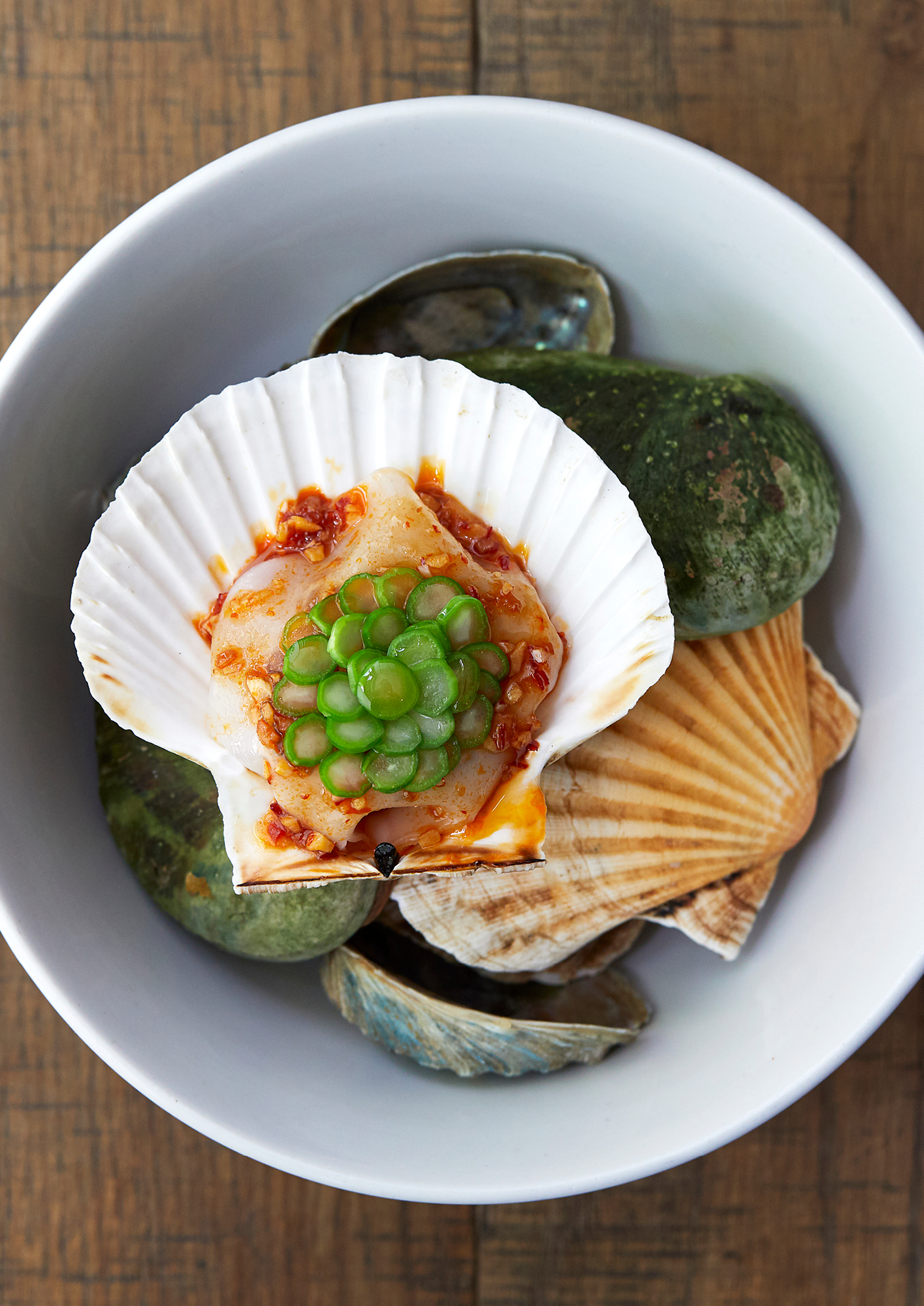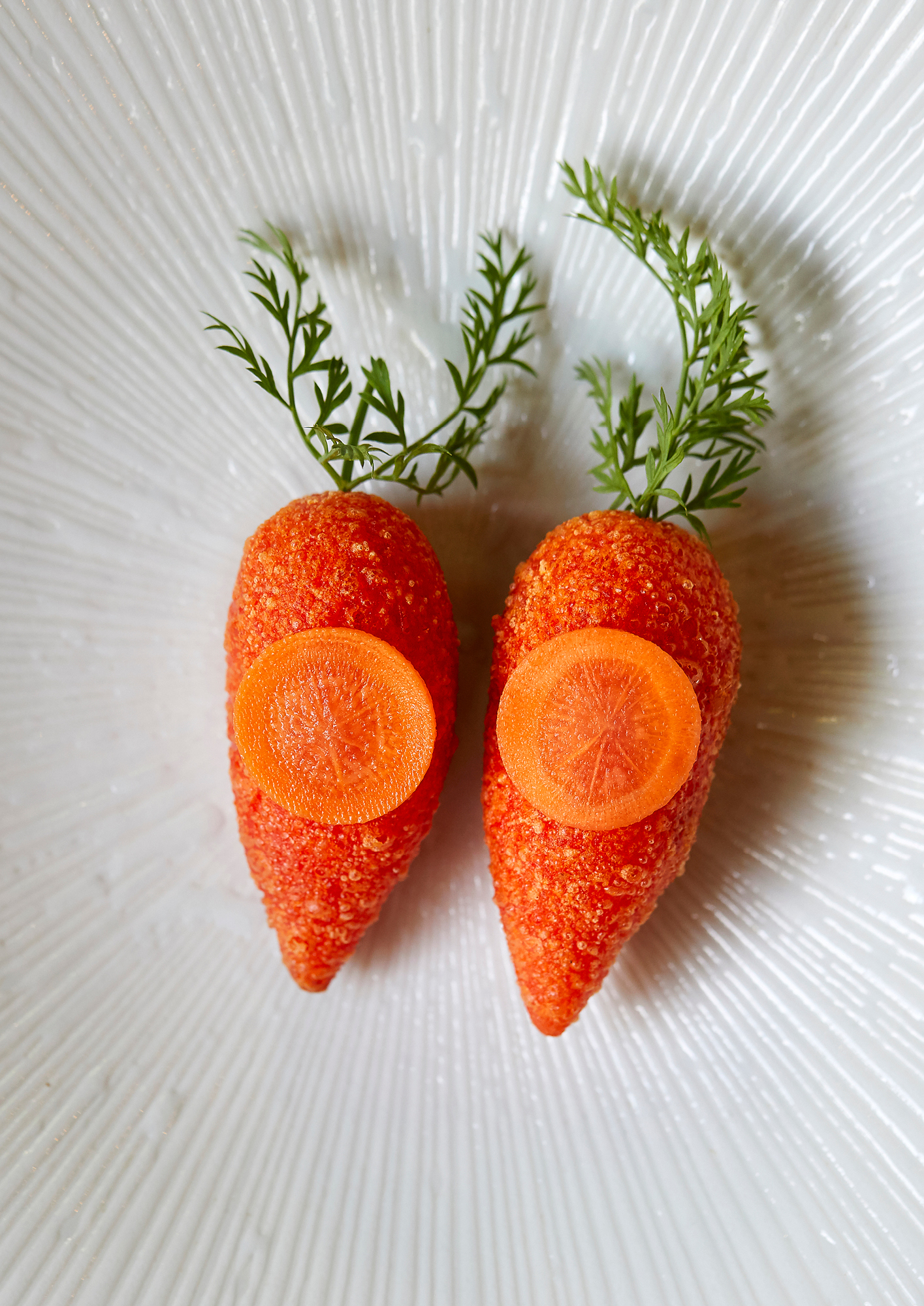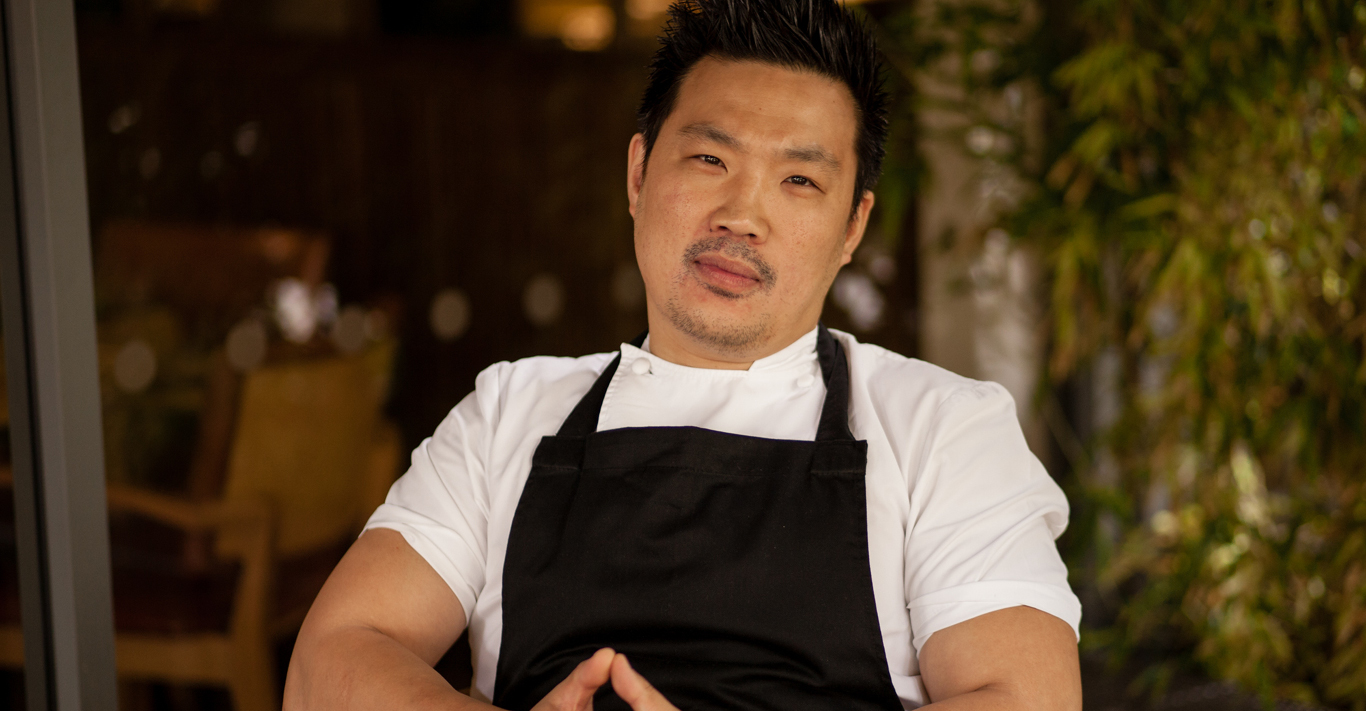WORDS
Gemma Billington
This year, you became an official Research Associate at the School of Oriental and African Studies (SOAS) Food Studies Centre. Can you tell us a little about what this role entails?
My position is about trying to find a common ground between the two worlds of academia and the culinary arts. Both have something to offer the other — it really is a collaboration where the end result is so much more unique than either of the two alone. From the academic’s perspective, what we [chefs] can offer them is something tangible to their work. People can talk about hypotheticals or test theories and arguments but the problem is that a lot of the time there’s nothing tactile there to relate to. Whether it’s 100% factual is actually irrelevant, it’s more that you have something to taste which is kind of a painted picture of a moment in time. I think for an academic that’s always quite exciting. Cooking is very functional at the end of the day. Whether you’re cooking at home or for the emperor, a lot of it is about using the resources that are immediately around us and trying to put a creative touch on it to make something delicious. That’s always been the universal purpose of being a chef.
How did you get involved with SOAS in the first place?
We got involved because Dr Mukta Das (food anthropologist and research associate at the SOAS Food Studies Centre) just came in for lunch one day. I believe I was questioning whether someone could actually devote themselves to the anthropology of food or something arrogant like that. She got my joke and we started chatting and it grew from there. We would go for coffee and she helped me out with presentations and I gave her insight into some of the information she was giving me. It hasn’t been a massively formal thing until this year, but even now it just feels like we are just hanging out and bouncing ideas off of one another. I always like to use historical references or some kind of real timeline in my food. She gave me a good framework of placing certain ingredients throughout history. But it’s not about recreating recipes, it’s about celebrating the fact that China borders 14 different countries, and those 14 countries all have an incredible history and culture of their own. Inevitably that will infiltrate into the borders of China. Food is naturally a collaboration between different cultures.

What is the most bizarre or unusual dish you have come across in your research?
Some of them are pretty out there. There’s one where they put some chickens inside a cage with a bowl of rice wine in the corner and then set the cage on fire to make all the chickens run towards the wine. No one can verify 100% how true these techniques are, but from my perspective it’s the thought process that’s important. So it’s that idea of the chef trying to get the freshest chicken and trying to find the best way to marinade a flavour into it. Their approach was to force the chicken to drink the wine. I’m not going to try that dish, of course, but I like the idea that people were thinking about this 2,500 thousand years ago. Or the very idea of Peking Duck — I’ve seen etchings on walls from over 2,000 years ago where people were making it near enough in exactly the same way we make it now. It’s a 48-hour process and incredibly technical. So the idea that in China, at that time, they were thinking about texture, smokiness, crispiness, marination — to me that’s incredible. It goes to show that, even with all the technology we have nowadays, we’re no better than chefs from 2,000 years ago.
What is the best advice you have ever been given in your career and why?
I know it sounds corny but the best piece of advice I’ve ever been given comes from my mum. She told me that, if you want to cook nice Chinese food, you need to make nice sauces. When I first opened my restaurant I was going down the wrong route. I was trying to ‘tattoo’ myself onto all the dishes, I wasn’t cooking to make delicious food because I was young and naive. I was spending so much time doing really irrelevant jobs — for things that no one would be able to taste. Mum said, ‘Andrew, relax a bit, just make some nice sauces and the rest will fall into place.’ In the restaurant today our sauces are the staple of our cuisine. With everything else we just try to make sure that we use the best ingredients to complement those sauces.
Who is your role model and how have they influenced your work?
The people I respect the most are the ones who rolled the dice — who decided to open a restaurant that would be the thing that would feed their children and put them through education. A lot of them are from my parent’s generation – they came over from another country, didn’t speak the language, started off small and succeeded through hard graft, improvising, and hustling when they had to. It’s that spirit which I find more inspiring than anything.

What ingredient(s) can you not live without and why?
Eggs, flour, oyster sauce and multiple different varieties of chillies. Different chillies for different dishes. And rice, obviously.
What item, apart from your passport, can you not travel without?
My phone. I wish that wasn’t my answer, but it is.
Where is your favourite place to eat in London?
I’ve got a few. I love the Reindeer Cafe in Edgware Road, I love Hoppers, the Sri Lankan restaurant — there’s one in Soho, one in King’s Cross and one in Marylebone. I love Lahore Kebab House, and Wingmans for their fried chicken and I like the duck in the Four Seasons in Chinatown. I think the Chinese restaurants in London, outside of China and southeast Asia, are the best in the world.
What do you like to do on a day off?
Spend time with my children. Normally I end up in Chinatown!
Apart from food, what are your biggest passions?
The stuff that we do in SOAS is a hobby and a passion — I’ve got a massive collection of thousands of cookbooks at home, so I do a lot of that. I also enjoy all kinds of fitness, I do some boxing and I used to do Muay Thai but I broke my nose. I’ve always had this dream of starting ice hockey — I’m 38 years old now — and my wife is like, absolutely not.
If you could choose anyone from today or history, who would be your ideal dinner party guest and why?
Barack Obama. I love the way he talks. He’s clear, there’s charisma, there’s warmth and at the same time there’s an air of regalness but in a lighthearted way. I like everything he stands for and I like the way he doesn’t say ‘um’ — ever. He could have said a lot of negative things about Trump but it’s not his style. That’s what I like about him. When you listen to him talk you really believe in him as a person.




